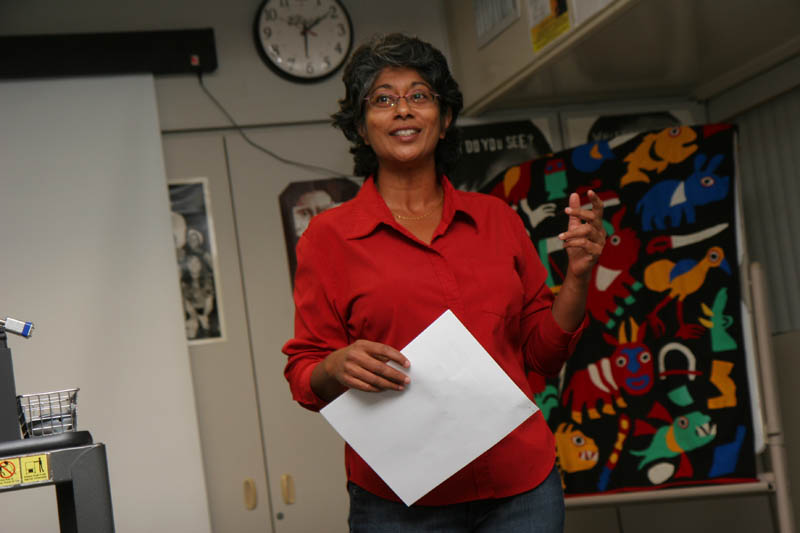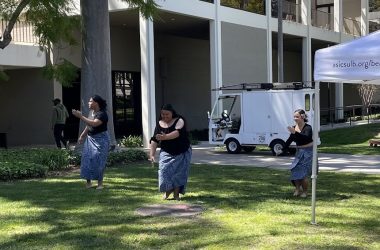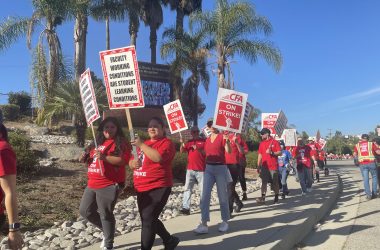Sex is being bought and sold worldwide; many women are being forced into sex work against their will, while others voluntarily enter the profession.
The Feminist Organization Reclaiming Consciousness and Equality (FORCE) held a screening of the documentary “Trading Women” to a small group of students in the Multicultural Center on Tuesday. Liz Philipose, a Women’s Gender and Sexuality Studies associate professor, introduced the movie with a lecture about the issue of sex trafficking.
This screening was part of Women of the World: Global Challenges, which will end on Thursday. This is the first year FORCE organized the event, which is described as a week of consciousness and action for threats that women face around the world.
“We needed a forum to discuss issues facing women around the world and the global struggles of women,” said Nicoal Sheen, a FORCE member. “I think in America, in part, it’s not something we think about. We have a very individual culture that makes it hard to talk about something that doesn’t focus on ourselves.”
Philipose’s lecture covered many of the different aspects of sex trafficking. She said trafficking is the most controversial topic among feminists because there are many types of trafficking and feminists cannot agree on how to protect women from being trafficked.
“Traffic in humans is not only for sex,” Philipose said. “There are other purposes for moving people forcefully. This includes slave-type labor, domestic servants, illegal adoption and human organ exchange.”
While feminists agree that something must be done about sex trafficking, they disagree on how a solution should be produced. There are two main coalitions regarding sex trafficking.
The abolitionist coalition argues that prostitution should be abolished.
“All prostitution, voluntary or coerced, is a violation of women’s rights,” Philipose said of the abolitionist platform. “Prostitution is the worst form of violence against women.”
This group has a larger influence over the government than the second coalition, since abolishing prostitution, and therefore sex trafficking, will aid in anti-immigration legislation. According to Philipose, the problem is that “they don’t start at the border; they don’t end at the border.”
The second group, the migrant labor coalition, argues that prostitution is an issue of labor and human rights.
“They distinguish between forced and voluntary sex work. Women can choose sex work; it’s all a choice,” Philipose said.
Since the mass of trafficked women are migrant laborers, they should be considered workers. If prostitution is considered sex work, and sex work is a form of labor, women should be protected by labor legislation, Philipose said of the migrant labor coalition platform.
Philipose ended by presenting solutions to sex trafficking. These included eradicating poverty, regulating the labor recruitment agencies that move women under false pretenses, and focusing on improving the conditions of women sex workers rather than stopping trafficking.
Then the documentary was shown, which detailed sex trafficking in Asia — mainly Myanmar, Thailand and China. Sex workers told their individual stories.
“I definitely learned a lot,” said Cecilia Portillo, a senior history major. “Before, I said trafficking is a mode of sexploitation. I didn’t think of the other side. The presentation opened my eyes.”
FORCE is an organization dedicated to educate and inform people about feminist issues on campus, as well as local, state and national issues. Women of the World will end today with two presentations. Rape as a Weapon of War will be presented in the Multicultural Center from 5:30-7 p.m. Reproductive Rights and Maternal Mortality will be presented in the Women’s Resource Center from 7:30-9 p.m.




